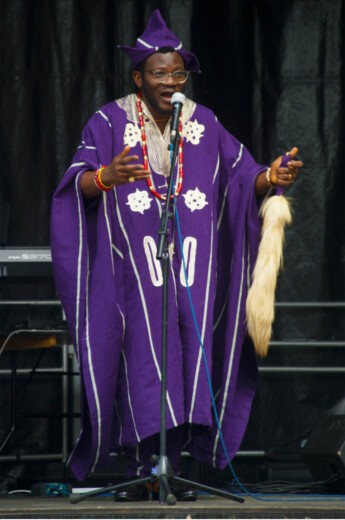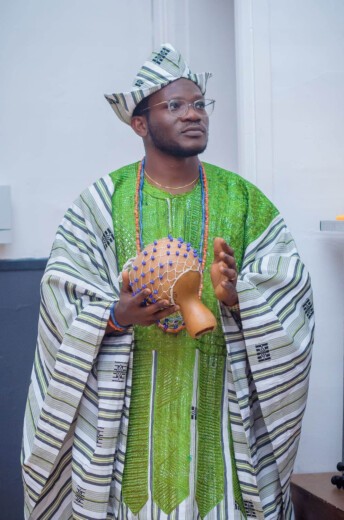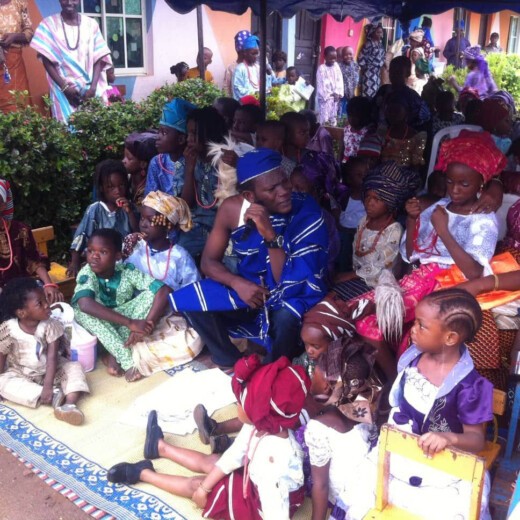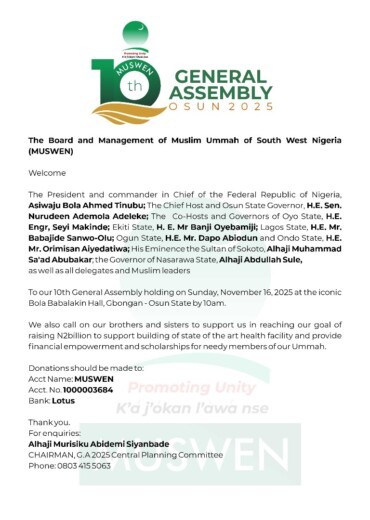As The United Kingdom celebrates Black History Month, voices like that of Adéṣínà Ayẹni, fondly known as Ọmọ Yoòbá, continue to remind the world of the enduring power of language, culture, and identity.
A cultural curator, translator, multidisciplinary artist-educator, and founder of Yobamoodua Cultural Heritage, Adéṣínà has spent more than a decade building bridges between tradition and technology, using storytelling and digital platforms to revitalise African languages and heritage.
His journey began in Nigeria, where he launched a traditional storytelling programme for primary school pupils, using folktales to instil moral values and pride in African identity. In 2021, he convened the Language Digital Activism Workshop for language promoters in Ghana and Nigeria, in partnership with Global Voices, empowering young advocates with digital tools to preserve and promote their native tongues. He later initiated the Nigerian Languages Data and Sci-Tech Conference (NLDSTC), now in its third year, a pioneering event that unites linguists, technologists, and cultural experts to advance the digital presence of Nigerian languages. As a cultural innovator and linguistic technologist, Adéṣínà also created a crowdsourcing neologism web-platform, TermLog, where linguists, lecturers, and other stakeholders collaborate to coin new terms in the three major Nigerian languages.


Now based in the UK, Adéṣínà, the Deputy Secretary of the Yorùbá Community in Hull and East Riding, continues his mission with renewed passion. In collaboration with the OAK Initiative, he leads in-person weekend language classes for children in Bradford, where pupils learn to speak Yorùbá, sing traditional songs, and connect with their cultural roots. He also serves as the Cultural Programmes Development Director at KULTUR RIVER C.I.C., a role through which he develops initiatives that celebrate African heritage within diverse British communities.

Most recently, Adéṣínà directed “Echoes of the Ancestors: Reawakening Yorùbá Cultural Heritage Through Folktale”, an experimental project supported by Arts Council England. The production used puppetry, music, and children’s performances to bring Yorùbá folktales to life, blending art, education, and culture in a captivating way.
In his continuous effort to bridge cultures through traditional knowledge, Adéṣínà is currently leading the World Mancala Tournament, which commenced on the 4th of October, an international event celebrating one of the oldest strategy games in human history. Mancala, also known as Ayò, is a traditional African board game that embodies critical thinking, patience, and community interaction. Hosting this global tournament in the UK in partnership with the University of Hull, not only showcases Africa’s contribution to world intellectual heritage but also promotes intercultural dialogue, inclusion, and mental well-being. By engaging participants from different backgrounds, the tournament encourages unity through play and highlights how traditional African knowledge systems can enrich modern British society.
Through these efforts, Ọmọ Yoòbá exemplifies how African heritage continues to inspire creativity, unity, and resilience across generations and beyond borders. His work reflects the true essence of Black History Month, honouring the past, empowering the present, and shaping a culturally inclusive future for the world.


